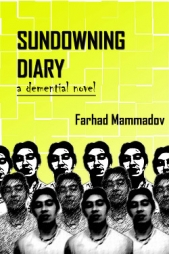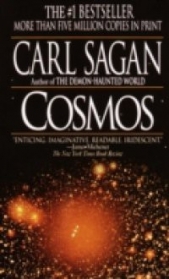[New Sun 04] The Citadel of the Autarch
![[New Sun 04] The Citadel of the Autarch](/uploads/posts/books/no-cover.jpg)
[New Sun 04] The Citadel of the Autarch читать книгу онлайн
Внимание! Книга может содержать контент только для совершеннолетних. Для несовершеннолетних чтение данного контента СТРОГО ЗАПРЕЩЕНО! Если в книге присутствует наличие пропаганды ЛГБТ и другого, запрещенного контента - просьба написать на почту [email protected] для удаления материала
“In the guild we have the ideal of poverty,” I said to Drotte as we leaned on the gunnel. “But those people do not need the ideal; they have achieved it.”
“I should think they’d need it most of all,” he answered.
He was wrong. The Increate was there, a thing beyond the Hierodules and those they serve; even on the river, I could feel his presence as one feels that of the master of a great house, though he may be in an obscure room on another floor. When we went ashore, it seemed to me that if I were to step through any doorway there, I might surprise some shining figure; and that the commander of all such figures was everywhere invisible only because he was too large to be seen.
We found a man’s sandal, worn but not old, lying in one of the grass-grown streets. I said, “I’m told there are looters wandering this place. That is one reason I asked you to come. If there were no one but myself involved, I would do it alone.”
Roche nodded and drew his sword, but Drotte said, “There’s no one here. You’ve become a great deal wiser than we are, Severian, but still, I think you’ve grown a little too accustomed to things that terrify ordinary people.”
I asked what he meant.
“You knew what the boatman was talking about. I could see that in your face. You were afraid too, or at least concerned. But not frightened like he was in his boat last night, or like Roche or Ouen there or I would have been if we’d been close to the river and knew what was going on. The looters you’re talking about were around last night, and they must keep a watch out for revenue boats. They won’t be anywhere near water today, or for several days to come.”
Eata touched my arm. “Do you think that girl—Maxellindis is she in danger, back there on the boat?”
“She’s not in as much danger as you are from her,” I said. He did not know what I meant, but I did.
His Maxellindis was not Thecla; his story could not be the same as my own. But I had seen the revolving corridors of Time behind the gamin face with the laughing brown eyes. Love is a long labour for torturers; and even if I were to dissolve the guild, Eata would become a torturer, as all men are, bound by the contempt for wealth without which a man is less than a man, inflicting pain by his nature, whether he willed it or not. I was sorry for him, and more sorry for Maxellindis the sailor girl.
Ouen and I went into the house, leaving Roche, Drotte, and Eata to keep watch from some distance away. As we stood at the door, I could hear the soft sound of Dorcas’s steps inside.
“We will not tell you who you are,” I said to Ouen. “And we cannot tell you what you may become.
But we are your Autarch, and we tell you what you must do.”
I had no words for him, but I discovered I did not need them. He knelt at once, as the castellan had.
“We brought the torturers with us so that you might know what was in store for you if you disobeyed us. But we do not wish you to disobey, and now, having met you, we doubt they were needed. There is a woman in this house. In a moment you will go in. You must tell her your story, as you told it to us, and you must remain with her and protect her, evenif she tries to send you away.”
“I will do my best. Autarch,” Ouen said.
“When you can, you must persuade her to leave this city of death. Until then, we give you this.” I took out the pistol and handed it to him. “It is worth a cartload of chrisos, but as long as you are here, it is far better for you to have than chrisos. When you and the woman are safe, we will buy it back from you, if you wish.” I showed him how to operate the pistol and left him.
I was alone then, and I do not doubt that there are some who, reading this too-brief account of a summer more than normally turbulent, will say that I have usually been so. Jonas, my only real friend, was in his own eyes merely a machine; Dorcas, whom I yet love, is in her own eyes merely a kind of ghost.
I do not feel it is so. We choose—or choose not—to be alone when we decide whom we will accept as our fellows, and whom we will reject. Thus an eremite in a mountain cave is in company, because the birds and coneys, the initiates whose words live in his “forest books,” and the windsthe messengers of the Increate—are his companions. Another man, living in the midst of millions, may be alone, because there are none but enemies and victims around him.
Agia, whom I might have loved, has chosen instead to become a female Vodalus, taking all that lives most fully in humanity as her opponent I, who might have loved Agia, who loved Dorcas deeply but perhaps not deeply enough, was now alone because I had become a part of her past, which she loved better than she had ever (except, I think, at first) loved me.
XXXVIII. Resurrection
ALMOST NOTHING REMAINS to be told. Dawn has come, the red sun like a bloody eye. The Wind blows cold through the window. In a few moments, a footman will carry in a steaming tray; with him, no doubt, will be old, twisted Father Inire eager to confer during the last few moments that remiain; old Father Inire, alive so long beyond the span of his short-lived kind; old Father Inire, who will not, I fear, long survive the red sun. How upset he will be to find I have been sitting up writing all night here in the clerestory.
Soon I must don robes of argent, the colour that is more pure than white. Never mind.
There will be long, slow days on the ship. I will read. I still have so much to learn. I will sleep, dozing in my berth, listening to the centuries wash against the hull. This manuscript I shall send to Master Ultan; but while I am on the ship, when I cannot sleep and have tired of reading, I shall write it out again—I who forget nothing—every word, just as I have written it here. I shall call it The Book of the New Sun, for that book, lost now for so many ages, is said to have predicted his coming. And when it is finished again, I shall seal that second copy in a coffer of lead and set it adrift on the seas of space and time.
Have I told you all I promised? I am aware that at various places in my narrative I have pledged that this or that should be made clear in the knitting up of the story. I remember them all, I am sure, but then I remember so much else. Before you assume that I have cheated you, read again, as I will write again.
Two things are clear to me. The first is that I am not the first Severian. Those who walk the corridors of Time saw him gain the Phoenix Throne, and thus it was that the Autarch, having been told of me, smiled in the House Azure, and the undine thrust me up when it seemed I must drown. (Yet surely the first Severian did not; something had already begun to reshape my life.) Let me guess now, though it is only, a guess, at the story of that first Severian.
He too was reared by the torturers, I think. He too was sent forth to Thrax. He too fled Thrax, and though he did not carry the Claw of the Conciliator, he must have been drawn to the fighting in the north—no doubt he hoped to escape the archon by hiding himself among the army. How he encountered the Autarch there I cannot say, but encounter him he did, and so, even as I, he (who in the final sense was and is myself) became Autarch in turn and sailed beyond the candles of night. Then those who walk the corridors walked back to the time when he was young, and my own story—as I have given it here in so many pages—began.
The second thing is this. He was not returned to his own time but became himself a walker of the corridors. I know now the identity of the man called the Head of Day, and why Hildegrin, who was too near, perished when we met, and why the witches fled. I know too in whose mausoleum I tarried as a child, that little building of stone with its rose, its fountain, and its flying ship all graven. I have disturbed my own tomb, and now I go to lie in it.























